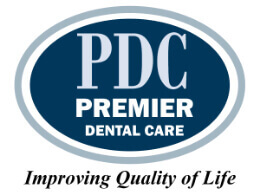Are you struggling with tooth loss? We provide only the best removable dentures in Washington, DC to support our patients with restored smiles. Premier Dental Care delivers tooth replacement options that are long-lasting, comfortable, and specially designed for you!
Who Needs Removable Dentures?

Removable dentures, also known as false teeth or fake teeth, are an optimal solution for patients missing several teeth, or even all of them. There are a number of reasons why patients may experience tooth loss, including tooth decay, oral injury, trauma, and disease. We create temporary, partial, and complete dentures to fully restore your natural smile.
Temporary Dentures
Dr. Hines can provide patients with temporary dentures while they are undergoing a cosmetic dentistry procedure to replace a missing tooth. Temporary dentures ensure that patients maintain a natural-looking smile while they wait for dental implants or a dental bridge to be completed. They are also an excellent solution for when a tooth gets knocked out due to an accident or during a sports game!
The temporary denture is secured in place with a metal wire that works like a retainer and can be removed whenever you like. Temporary dentures are meant to be worn for just a few months at a time and will need to be removed or replaced. If you need an immediate tooth replacement option, call us right away!
Partial & Complete Dentures
Complete dentures are designed to replace all your teeth on the upper and lower arches. while partial dentures are used to replace several missing teeth. Unlike implant dentures, you can take out your removable dentures to sleep.
Implant-Retained Dentures
Seeking a more stable alternative to dentures? To more securely hold your restorations in place, Premier Dental Care offers a procedure that combines implant dentistry with the look and feel of dentures.
Implant-retained dentures first require an impression carefully taken of your mouth. Dr. Hines will use the impression to create a prosthesis that will snap into place using powerful dental implants. The new dentures will be secured to metal posts implanted under the gums, allowing a level of stability that can only result from the use of implant technology.
With the same luminous appearance as custom-crafted dentures, implant-retained dentures have the added benefit of being an affordable alternative to a full mouth of dental implants! If you're seeking implant-retained dentures in the DC area, our team will be happy to examine your gums and determine if you are a good candidate for the procedure.
How Much Do Removable Dentures Cost?
Your total out-of-pocket dentures cost will vary according to your dental insurance plan. Fortunately, Premier Dental Care is in-network with a majority of major dental insurances. We also partner with third-party lenders to provide additional support for your treatment costs!
If you're uninsured, we offer an in-house dental discount plan designed to provide major savings on a selection of dental treatments and procedures. Call our office today with any questions you may have and our friendly patient coordinator will be happy to assist you!
Schedule Your Dentures Consultation Today!
If you're seeking relief from tooth loss in Washington, DC, Premier Dental Care is here to provide the customized tooth replacement that fits you best! Call our office today to schedule your dentures consultation.

